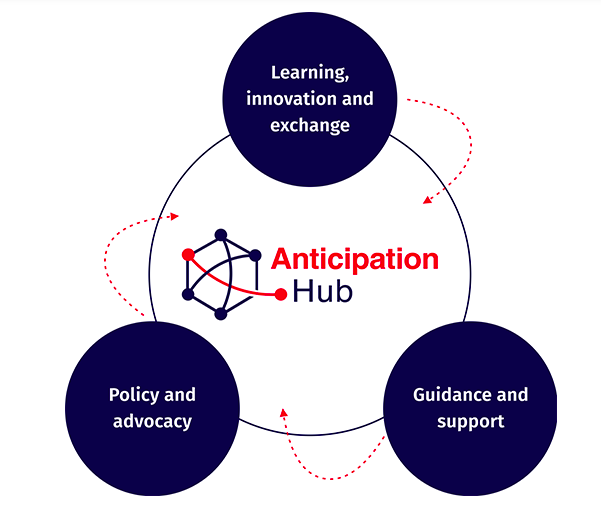The Disasters programme unit at the National Aeronautics and Space Administration (NASA) recently joined a newly launched online platform aimed at placing anticipatory action on the humanitarian agenda. NASA’s involvement in the Anticipation Hub and the subsequent incorporation of Earth observation (EO) tools, serves to improve the capabilities of anticipatory action globally and demonstrates the potential of utilizing satellite-driven data for anticipatory action in disaster management.
Anticipatory action in the humanitarian context describes disaster mitigation activities based on in-depth forecast information and risk analysis. This approach has gained traction amongst the humanitarian community in recent years as it is viewed as a more efficient and affordable alternative to the reactive approach of traditional humanitarian action. A popular anticipatory action programme is Forecast-based Financing (FbF) initiated by the International Federation of Red Cross and Red Crescent Societies (IFRC). In FbF, fund allocations are agreed upon beforehand along with a forecast threshold for when they are to be released, ensuring more efficient and timely financing takes place for early action activities. More information about other anticipatory action frameworks and the role of EO data in anticipatory action can be found here.
Hosted by the German Red Cross, in collaboration with the IFRC and the Climate Centre and with financial support from the German Foreign Office, the Anticipation Hub is a platform connecting practice, science and policy on anticipatory action. The platform is supported by a broad range of partner organizations spanning the fields of academia, research, industry and government. In its mission to place anticipatory action on the humanitarian agenda, the Anticipation Hub focuses on three strategic areas in particular. First, it sees its role as a platform for knowledge exchange and relationship building to encourage innovative ideas and long-lasting partnerships, respectively. Secondly, it aims to offer guidance and support for anticipatory action initiatives to improve their effectiveness and impact and create a link to disaster risk reduction and climate change adaptation activities. Lastly, it wants to promote policy and advocacy efforts alongside its members and partners to conventionalize anticipatory action in the humanitarian sector.

The participation of NASA’s Disasters programme in the Anticipation Hub is in accordance with the programme’s mission to advance the usability of EO in disaster management. The integration of the EO data gathered by NASA’s Disasters programme offers “actionable insights from data analysis, enhanced situational awareness and ‘environmental intelligence’ from information” to support anticipatory action decision-making on the ground according to NASA. Moreover, the development demonstrates the potential of utilizing satellite-driven data for anticipatory action in disaster management. Andrew Kruczkiewicz, a Senior Researcher at the International Research Institute for Climate and Society at Columbia University, told Climate Centre: “The Anticipation Hub is an ideal platform for convening discussions on how to integrate satellite data into decision-making on early action, and how space missions can actually reflect the priorities of anticipatory action”.

